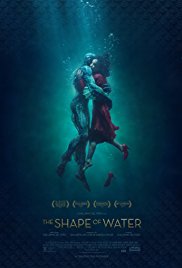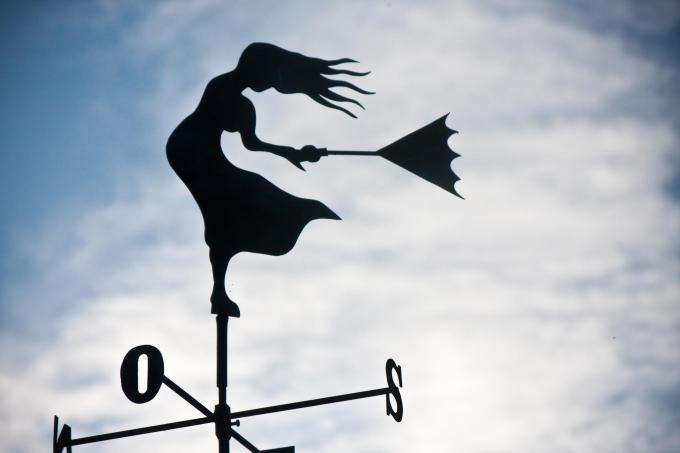
Weddings, weddings! Yes I sat through the most recent royal wedding to see all the festivities, pomp and circumstance, and general brew ha ha over Harry and Meghan. And naturally, as this is a theological blog, I zero in on the firey sermon given by Bishop Michael Curry. But alas, to no avail. It was yet another syrupy dalliance with the effervescent nature of global love that would make Rob Bell proud.
A minister of the gospel, a pastor of a flock, and an American to boot, is given the stage to speak to the world and what does he do? Uses his time to talk of “LOVE” and how it is the most powerful thing and can leap tall buildings in a single bound.
Stephen McAlpine nailed it in his latest blog “A Tale of Two Royal Weddings”. “A wedding that looks as grand spanking Royal as Charles and Di’s ever did. But a wedding that still needs a cross at the centre – under the surface of it – like theirs needed, but sadly failed to contain. Not just the love of Jesus as he lived, but the love of Jesus as he died.”
Not too long ago I attended the wedding of wonderful friends in Christ. The pastor who spoke used the opportunity to speak of the couples love and vowed commitment to one another, yes, but it did not rest there. He pushed on toward the meaning and purpose of marriage for the man and woman, how it is to challenge them to live for the other because this is what Christ did; challenge them to love even when the other is not loveable, because this is what Christ did; and challenge them to honor even when the other is not honorable, because that is what Christ did. He spoke of God’s design for marriage, between one man and one woman, and their responsibilities toward one another. It was a true celebration of not just the marriage of the couple, but of its representation of Christ and the church. This is what marriage points to and what Bishop Curry missed. Where did Bishop Michael Curry’s sermon take us? In case you missed it, the Cross was not in sight.
He spoke as if the love we feel for one another, puppy, at first sight, or any other, is the love that represents God Himself. Nothing could be farther from the truth. When we raise love above all else we find ourselves loving at all costs, even those things that ought not to be loved. And we do things that ought not to be done, for the sake of this selfsame love.
Many people like to quote 1John in their effort to highlight the superiority of love above all else. What they miss is that what we call love, what we experience as love, what we define as love, misses the mark, try as we might. And we all know what missing the mark means—sin. We cannot compare our view of love to God’s because His love is nothing like ours. It might point to His but we never quite makes it there.
Quote from the VOX about the wedding “But one of the most striking elements of the royal wedding was also among the most unexpected: the fiery, impassioned, and theologically-charged sermon of American Episcopalian bishop Michael Curry.
“Most theologically charged sermon…”? Really? Without mention of the cross? This is an example of moralistic therapeutic deism of the finest sort. And I hate that I must bring this up because there is beauty and majesty in love, but it is a love that has been exposed to and rubbed against a splintered cross in a brutal and beautiful way. It is a love that makes us hang our heads in shame able to raise them only because of the humility of the cross. It is love we should fear because it demanded the cross. It is a love we should practice because it required the cross.
Bishop Curry had a world stage that few theologians and preachers get…and he blew it. When he could have spoken to a world (especially Great Britain and the rest of the Western world) of Christ, his love, his sacrifice, and his triumph, instead he spoke of a “Rob Bellian” love that fails to satisfy. When this love of which he spoke, no longer reigns supreme in the marriage, where is the couple to go? When it is no longer producing the fire of which he spoke, what should the couple do? When it fades into comfortable co-existence, what will the couple do to kindle a new kind of love, more real and enduring? His was a world audience thirsting for truth and Bishop Curry gave them a drop of water when he had a whole river of truth from which to draw.
The Cross…I am convinced that every sermon, in life, in marriage, and especially in death, must draw us inextricably to the Cross. Otherwise, nothing makes sense, or in the words of Solomon, “vanity, vanity, all is vanity.” (As you can see I am still stuck in Ecclesiastes.) The Cross is the sticking point for all of Christianity.
John Stott magnificently describes in his book The Cross of Christ, 4 affirmations about the cross from which we can then, and only then, touch upon the subject of love (or righteousness or humility, or grace or mercy, or…).
- The Cross is the ground of our justification.
- The Cross is the means of our sanctification.
- The Cross is the subject of our witness.
- The cross is the object of our boasting.
The cross…the cross…this should have been the subject of Bishop Curry’s sermon. He had the opportunity of a life time to speak wisdom and instead chose to tickle our ears.
I charge you in the presence of God and of Christ Jesus, who is to judge the living and the dead, and by his appearing and his kingdom:2 preach the word; be ready in season and out of season; reprove, rebuke, and exhort, with complete patience and teaching. 3 For the time is coming when people will not endure sound[a] teaching, but having itching ears they will accumulate for themselves teachers to suit their own passions, 4 and will turn away from listening to the truth and wander off into myths. 2 Timothy 4:1-4

 It has taken a while to gather my thoughts concerning the movie that won the Best Picture Oscar this year. Naively thinking that it might be something interesting to watch, and since the movie theater was offering discounted tickets for certain showings, off I went. As my friend and I left the theater, another woman walking behind us heard our comments and joined our discussion about a movie that left us gob-smacked. Even now, we are still not entirely sure what the point was.
It has taken a while to gather my thoughts concerning the movie that won the Best Picture Oscar this year. Naively thinking that it might be something interesting to watch, and since the movie theater was offering discounted tickets for certain showings, off I went. As my friend and I left the theater, another woman walking behind us heard our comments and joined our discussion about a movie that left us gob-smacked. Even now, we are still not entirely sure what the point was.

 Anyway, it is this last phrase that speaks to the feeling of reading Ecclesiastes. To make that knot hole even smaller, is to read (or listen in my case) while setting up house after yet another move. Picking up a treasure that has managed to make the journey from the US to Italy to Australia, to the US, to Germany, to the US, and now back to Australia, is a testament to either the talent of the various packers involved in each move or to the resilience of the item itself. Gently placing said item on the shelf only to hear in the background (I was listening the Max McLean read Ecclesiastes while unpacking) “Vanity, vanity, all is vanity.” Or “
Anyway, it is this last phrase that speaks to the feeling of reading Ecclesiastes. To make that knot hole even smaller, is to read (or listen in my case) while setting up house after yet another move. Picking up a treasure that has managed to make the journey from the US to Italy to Australia, to the US, to Germany, to the US, and now back to Australia, is a testament to either the talent of the various packers involved in each move or to the resilience of the item itself. Gently placing said item on the shelf only to hear in the background (I was listening the Max McLean read Ecclesiastes while unpacking) “Vanity, vanity, all is vanity.” Or “